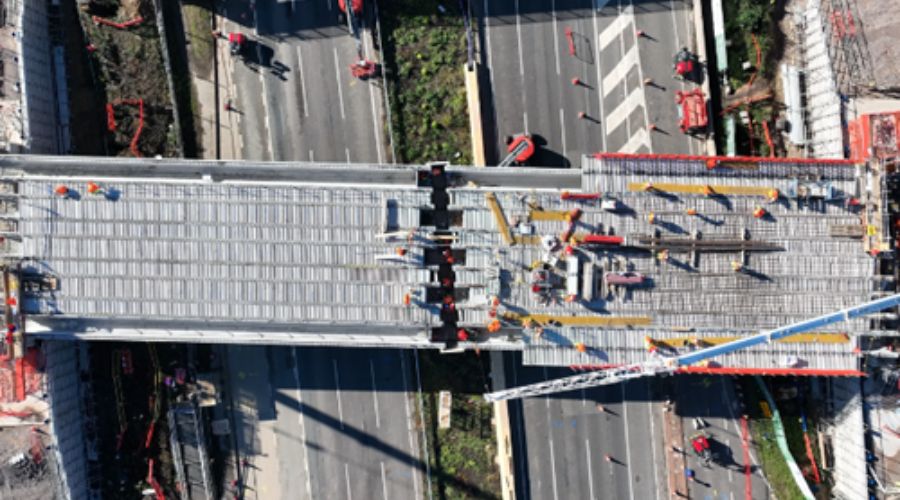Balfour Beatty and Laing O’Rourke will be part of a new multi-year research trial aimed at reducing the carbon footprint and cost of bridge construction.

The trial will begin in the coming weeks at the Wisley Interchange as part of M25 junction 10 improvements.
Using sensors to measure strain and stress profiles, as well as the surrounding soil, the research will analyse if fewer materials are required in the design, installation and maintenance of integral bridges which, unlike larger structures, tend not to have expansion joints between spans or abutments and are often small- to medium-size structures.
That data will be gathered and analysed over a three-year period by National Highways, AtkinsRéalis, and Cambridge University.
M25 operation and management service, Connect Plus, is also part of the research trial.
“This trial is important because integral bridges could offer greater durability and lower maintenance costs and provide a more sustainable alternative to the conventional design of bridge structures,” said National Highways head of research, Phillip Proctor.
The trial will test if current design guidance and material specifications for integral bridges could be modified, while maintaining rigorous safety and construction standards, and therefore reduce embodied carbon emissions and whole life costs.
Embodied carbon is the amount of carbon emitted during the construction process such as the extraction of raw materials, manufacturing and transporting products, and the disposal of old materials.
“This is the first data trial of its kind in the UK and demonstrates the value of cross-industry collaboration to support innovation and accelerate research in a real-world scenario,” said AtkinsRéalis director of innovation, Matt Peck.
“AtkinsRéalis is proud to be leading this project on behalf of National Highways – it will not only provide a rich data set that can be used to support further research into how integral bridges perform over time, [but] it will also result in significant material and cost efficiencies over the lifespan of the bridge, positively contributing towards net zero targets.”
Proctor added: “Safety is always our number one priority and we need this research to make sure any changes would still comply with the strictest safety standards.”
Enjoyed this? Try Final thoughts from HS2 boss before ‘new challenge’
If you have a tip or story idea that fits with our publication, please contact the news team at rory@wavenews.co.uk
Get industry news in 5 minutes!
A daily email that makes industry news enjoyable. It’s completely free.
